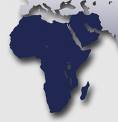Haim Cohen, a former judge of the Supreme Court of Israel stated: "The bitter irony of fate decreed that the same
biological and racist argument extended by the Nazis, and which inspired the inflammatory laws of Nuremberg, serve as the
basis for the official definition of Jewishness in the bosom of the state of Israel" (quoted in Joseph Badi, Fundamental Laws
of the State of Israel NY, 1960, P.156)
Marriages and other aspects of civil laws are decided by religious courts who do not recognize
marriage between Jews and Palestinians. The Israeli government pays the salary of rabbis and the employee's of municipal
rabbinates and religious councils. In 2004 3,000 Rabbi's and employee's of municipal rabbinates and religious councils
almost went on strike over back pay issues with the government.
Recently, the Israeli Ministry of Interior ruled that
new immigrants who have converted to Judaism will not be allowed to bring non-Jewish family members into the country. The
decision is expected to cut in half the number of eligible immigrants to Israel.
Under the emergency regulation from the British mandate
which is still in force-- the Press Ordinance of 1933 -- the government can close newspapers at will and without reason.
. In Israel Citizenship and nationality are two different
things. Citizenship (ezrahut) may be held by Arabs or Jews. Nationality (le'um), bestows much greater
rights than citizenship, is for Jews alone. In 1972 the
Supreme Court that non-Jews cannot qualify for nationality rights in the state of Israel because there is no Israeli nation
separate from the Jewish people.
All articles in Israel dealing with security issues
must be submitted to a military censor. You cannot appeal his decision. Security issues in Israel cover vast areas
of public policy.
Some time ago it was found that the Israeli Broadcasting
Authority (IBA) was setting up illegal roadblocks in Arab areas, (staffed by police) where Arab drivers are stopped and required
to pay fines for not having TV licenses. They are threatened with having their cars impounded or not having their identity
papers returned. They have collected some $5 million dollars.
Arab pupils make up a third of the total school population in Israel
but Arab schools receive just seven per cent of the Israeli education ministry's budget. Arab municipalities which also contribute to school budgets receive a much lower allocation.
The Human Rights Watch Report in 2001 identified systematic
discrimination in education resources that disadvantages Palestinian children. This discrimination includes class sizes
are much bigger; there are fewer textbooks and many of them are inadequate; buildings are in far worse condition; there is
a widespread lack of kindergartens, vocational programs and remedial classes. The standard of special education for disabled
children is particularly harshly criticized in the report.
Who teaches Palestinian children is controlled by the Israeli security apparatus.
"Political" people, those who teach about Palestinian history,
are not allowed in the schools. There is a department that investigates "political activity" in the schools. "The Shin Bet not only determined and intervened in the appointment
of principals and teachers, but even decided who the custodians and janitors that clean the bathrooms in the Arab schools
would be." Shin Bet official in the Israeli newspaper Haaretz.
May 2005, Haaretz
Nachman Tal a former deputy director of the Shin Bet, said
state discrimination was rife. "I recently checked and found that out of the 13,000 permanent employees in the Israel Electric
Corporation, only six are Arabs."
May 2005 the governor of the Bank of Israel, David
Klein, admitts that there was not a single Arab among his staff of 800. In the bank's 50-year history they only employed two
Arabs who oversaw the bank's operation in the occupied Palestinian territories. They were dismissed in 1994 when the territories
were handed over to the Palestinian Authority.
The "national priority areas",
which give extra benefits to residents and businesses, are almost completely for the Jews -- even though the Central Bureau
of Statistics showed 70 per cent of the poorest areas in Israel are
Arab. Currently 492 Jewish communities have priority. There
are four small Arab villages on the list.
The Nazareth Human Rights Association said in 2002
in its report "Silencing Dissent" that the security services assaulted all the Arab Knesset members in that parliament, a
few of them several times, at peaceful demonstrations. All but but one of the Arab legislators had to be hospitalized.
Not far from the memorial to the Jewish children lost in the holocaust is a former Arab
village. It is a parking lot.
- The Israeli parliament rejected a proposed
bill that would ban any party trying
to incite the expulsion of Palestinians or Arab Israelis from the assembly.
Recent polls have shown that 20 to 30% of the Israelis favor some sort
of transfer of the original inhabitants of the land.
_________
Chris Hedges, who was on the NY Times team that won the Pulitzer Prize for Explanatory Reporting
for the paper's coverage of global terrorism has been a foreign correspondent for fifteen years and has covered wars in El
Salvador, Guatemala, Algeria, Palestine and the Balkans wrote of an experience in the Khan Younis refugee camp in Gaza in
his 2002 book, "War is a Force that gives us Meaning":

